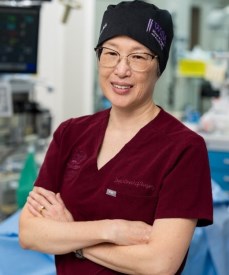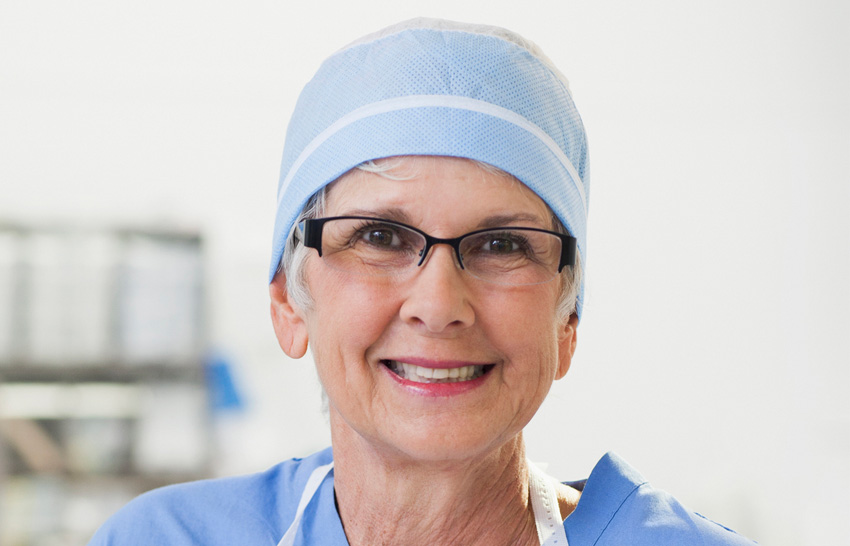

Mentorship, by a more experienced surgeon of one newly graduated from years of training, has been cited as a necessary and beneficial asset to professional development among surgeons.1 In fact, faculty mentorship was the subject of query at a recent Liaison Committee on Medical Education survey. (However, nearly 50% of departments of surgery in the U.S. do not have established mentorship programs.)1 In a survey of surgeons who transitioned from training programs to independent practice, 44% left their first job after a median of 3.3 years.2 Surgeons who received mentorship during their first job were half as likely to leave than those who did not receive mentorship (36.3% vs. 64.3%).2 Furthermore, mentoring has been associated with beneficial effects on improving resilience and decreasing burnout among surgeons.3,4
While the importance of mentorship is well recognized, mentoring in the surgical field primarily takes the form of informal meetings between junior and senior surgeons.2 Young surgeons starting practice express needs for aspects of the surgical field that are often not taught in medical school or residency curricula such as: developing autonomy, practice management and the business side of medicine; heath care economics and policy; and leadership and management skills.5 Institution-driven (rather than physician-driven) mentoring programs have had a more beneficial effect on physician burnout.4 A main challenge for finding experienced surgeons to mentor less experienced surgeons is the lack of time to commit to the effort among busy, practicing surgeons.
One possible solution is to engage retired surgeons, who have a wealth of experience, in mentoring young surgeons. A survey of retired surgeons (mean age 79 years, mean interval from retirement 15 years) revealed that more than 50% were interested in mentoring young surgeons with over 80% willing to mentor without compensation.6 The main barrier was the need to shield the senior surgeon from any malpractice liability while mentoring in the intraoperative setting.6 As the surgical workforce ages and the American College of Surgeons and other organizations grapple with assessing the aging surgeon,7 leveraging the still-to-be-tapped experience of our senior surgeons in this Blue Zone (a geographic area of longevity) to mentor the next generation of surgeons in formal, institution-led programs may be a win-win for all.
Author Bio:

Sharon Lum, MD, MBA, FACS
Dr. Lum is Professor and Chair of the Department of Surgery for the School of Medicine. She is also the President of the Southern California Chapter of the American College of Surgeons and is the Vice Chair of the Legislative Committee of the American Society of Breast Surgeons. Her research interests include quality measures and disparities in breast and other cancer outcomes.
References
- Kibbe MR, Pellegrini CA, Townsend CM Jr, Helenowski IB, Patti MG. Characterization of Mentorship Programs in Departments of Surgery in the United States. JAMA Surg. 2016 Oct 1;151(10):900-906. doi: 10.1001/jamasurg.2016.1670. PMID: 27383863.
- Stolarski A, He K, Sell N, Chugh P, O'Neal P, Smink DS, Whang E, Kristo G. Mentoring experience of new surgeons during their transition to independent practice: A nationwide survey. Surgery. 2021 Jun;169(6):1354-1360. doi: 10.1016/j.surg.2020.11.044. Epub 2020 Dec 28. PMID: 33384160.
- Balch CM, Freischlag JA, Shanafelt TD. Stress and burnout among surgeons: understanding and managing the syndrome and avoiding the adverse consequences. Arch Surg. 2009 Apr;144(4):371-6. doi: 10.1001/archsurg.2008.575. PMID: 19380652.
- Panagioti M, Panagopoulou E, Bower P, Lewith G, Kontopantelis E, Chew-Graham C, Dawson S, van Marwijk H, Geraghty K, Esmail A. Controlled Interventions to Reduce Burnout in Physicians: A Systematic Review and Meta-analysis. JAMA Intern Med. 2017 Feb 1;177(2):195-205. doi: 10.1001/jamainternmed.2016.7674. PMID: 27918798.
- Richardson JD, Buckley BM, Shabahang MM, Giles WH, Sachdeva AK, Burns RP. From Transition to Practice to Mastery in General Surgery. https://www.facs.org/for-medical-professionals/news-publications/news-and-articles/bulletin/2018/07/from-transition-to-practice-to-mastery-in-general-surgery/
- Kim NE, Moseley JM, O'Neal P, Whang E, Itani KMF, Kristo G. Retired Surgeons as Mentors for Surgical Training Graduates Entering Practice: An Underutilized Resource. Ann Surg. 2021 Mar 1;273(3):613-617. doi: 10.1097/SLA.0000000000003272. PMID: 30907756.
- Katlic MR, Coleman J, Russell MM. Assessing the Performance of Aging Surgeons. JAMA. 2019 Feb 5;321(5):449-450. doi: 10.1001/jama.2018.22216. PMID: 30640368.
